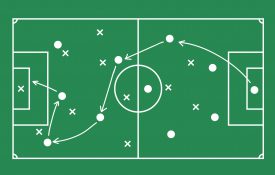-
New Research From Psychological Science
Read about the latest research published in Psychological Science. Deliberation's Blindsight: How Cognitive Load Can Improve Judgments Janina A. Hoffmann, Bettina von Helversen, and Jörg Rieskamp When one is under a high cognitive load, why does task performance increase in some cases but decrease in others? Participants performed a multiple-cue judgment task in which they switched from a rule-based to a similarity-based judgment strategy as cognitive load increased. This switch in strategy harmed their performance on linear judgment tasks but improved their performance on nonlinear judgment tasks.
-
Study Shows How Bilinguals Switch Between Languages
Individuals who learn two languages at an early age seem to switch back and forth between separate "sound systems" for each language, according to new research conducted at the University of Arizona. The research, to be published in a forthcoming issue of Psychological Science, a journal of the Association for Psychological Science, addresses enduring questions in bilingual studies about how bilingual speakers hear and process sound in two different languages.
-
New Research From Clinical Psychological Science
Read about the latest research published in Clinical Psychological Science. The Frequency and Impact of Exposure to Potentially Traumatic Events Over the Life Course Christin M. Ogle, David C. Rubin, Dorthe Berntsen, and Ilene C. Siegler How does the timing and impact of traumatic events differ across the lifespan? Participants between the ages of 55 and 69 reported the number of times and the age at which they experienced traumatic events, the extent to which the trauma formed a central component of their identity, and their symptoms of posttraumatic stress disorder (PTSD).
-
High-Testosterone Competitors More Likely to Choose Red
Why do so many sports players and athletes choose to wear the color red when they compete? A new study to be published in Psychological Science, a journal of the Association for Psychological Science, suggests that it may have to do with their testosterone levels. The new study, conducted by psychological scientist Daniel Farrelly of the University of Sunderland and colleagues, demonstrated that males who chose red as their color in a competitive task had higher testosterone levels than other males who chose blue. “The research shows that there is something special about the color red in competition, and that it is associated with our underlying biological systems,” says Farrelly.
-
Political Motivations May Have Evolutionary Links to Physical Strength
Men’s upper-body strength predicts their political opinions on economic redistribution, according to new research published in Psychological Science, a journal of the Association for Psychological Science. The principal investigators of the research -- psychological scientists Michael Bang Petersen of Aarhus University, Denmark and Daniel Sznycer of University of California, Santa Barbara -- believe that the link may reflect psychological traits that evolved in response to our early ancestral environments and continue to influence behavior today. “While many think of politics as a modern phenomenon, it has -- in a sense -- always been with our species,” says Petersen.
-

When Deciding How to Bet, Less Detailed Information May Be Better
People are worse at predicting whether a sports team will win, lose, or tie when they bet on the final score than when they bet on the overall outcome, according to a new study published

